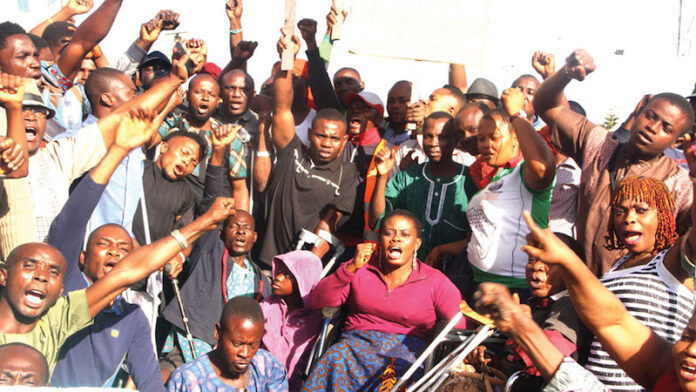Some community leaders and Persons with Disabilities (PWDs), on Wednesday commended the Kaduna State Government’s “Second Chance Education” (SCE) programme.
The stakeholders gave the commendation in Kaduna, on the sidelines of a one-day advocacy and sensitisation programme to enlist the support of community leaders for SCE effective implementation.
The sensitisation is organised by Partnership to Engage, Reform and Learn (PERL), a governance programme being funded by UK Foreign, Commonwealth and Development Office (FCDO).
In separate interviews with the News Agency of Nigeria, the stakeholders described the programme as a “great opportunity” for the poor and vulnerable, who missed the chance to acquire basic education.
They also thanked PERL for mobilising community members and critical stakeholders to support the implementation of the SCE initiative at the community level.
Mr Rufai Ibrahim, Village Head of Tsohon Garin Rigachikun, Igabi Local Government Area of the state, acknowledged the huge number of school dropouts and out-of-school children in his community.
Ibrahim said that the SCE programme presented a rare opportunity for uneducated children and adults to acquire basic education and contribute to the development of the community.
He thanked the state government for the initiative, saying; “it is truly a second chance for the uneducated in communities to acquire basic education, irrespective of age or status”.
Also, Mr Haruna Sani, School-Based Management Committee (SBMC) Chairman, Babban Saura Primacy School, noted that several married men and women do not have basic education for various reasons.
Sani, who described the programme as a “chance for a better life”, pledged to mobilise dropouts and out-of-school children in his community to utilise the opportunity of acquiring basic education for a better life.
A PWD, Mr Yahaya Suleiman, Chief Executive Officer, Aroncy 10-10 Foundation, told NAN that the programme was timely, considering the huge number of dropped outs and out of school children in the state.
The visually impaired Suleiman said that poverty and several factors had remained bottlenecks for the poor and vulnerable, particularly PWDs, to acquire education.
He particularly commended sponsors for identifying PWDs as beneficiaries of the programme, adding that it would go a long way in providing the needed opportunity for uneducated PWDs to acquire basic education.
According to him, disability and illiteracy are double jeopardy confronting PWDs, stressing that the SCE programme will significantly assist PWDs to acquire literacy skills and ameliorate their plight.
He suggested the establishment of an SCE Trust Fund that would provide resources to support the education of the less privileged who could afford an education.
Another PWD , Ms Esther Peter, 48, who did not have any formal education, said that she learnt how to write her name when she had a chance of attending an adult education class that lasted for only three months before it was closed down.
“If I had the opportunity to attend the school for two years, I would have gone very far in acquiring a basic education to help me navigate through life with ease.
“I feel that this second chance education programme is for people like me that want to learn, but lack the opportunity due to distance to the nearest school,” Peter told NAN.
Mrs Hadiza Umar, Citizens Co-chair, Open Government Partnership, said that the programme would only be successful if community, and other critical stakeholders supported the idea.
Umar stressed the need for community ownership and support, to ensure effective implementation of the programme.
NAN reports that Kaduna State Government in 2018, introduced the SCE programme specifically designed for persons who missed the opportunity to acquire basic education or dropped out of school.
The programme had so far reached 14 communities in 10 LGAs across the state, with support from the United Nations Population Fund (UNPF).
PERL has equally supported the development of the SCE Implementation Framework and Advocacy Strategy, to ensure success of the programme.
So far, about 700 dropped out married adolescent girls, have been enrolled for the SCE programme, with support from the UNPF, since its inception in 2018.
A total of 50 dropped out married adolescent girls were enrolled in 2018, additional 50 in 2019, and 600 more between 2020 and 2021.
(NAN)


